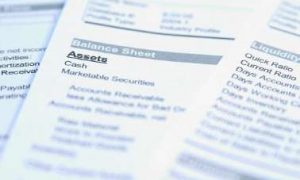Management accounting, also known as managerial or cost accounting, focuses on internal operations and uses operational metrics to help business owners and managers make informed business decisions.
This is done by addressing questions and concerns in specific areas of a business, rather than concentrating on past performance.
Overview: What is management accounting?
Management accounting focuses on the management of internal operating activities.
Designed to assist business owners and managers with the decision-making process, management accounting commonly addresses company operational efficiency by examining issues such as product costing, margins, income projections, and forecasting.
In addition, management accounting frequently deals with numerous ‘what-if’ scenarios such as:
• What if I raise prices?
• What if I lower prices?
• What if I change distributors
• What if I stop selling a product?
• What if I upgrade my machinery?
• What if I hire another salesperson?
Management accounting looks at the benefits and drawbacks of each of these scenarios to determine if the ‘what-if’ option will create greater efficiency and profitability for the business, or cause production problems or a loss of income.
Management accounting also deals with financial statements, though the reports are used more to create strategic plans, solving logjams, and creating a more efficient operation rather than as a means for reporting on business performance.
Management accounting vs. financial accounting: What’s the difference?
Management accounting is always used for internal purposes, while financial accounting provides information that is based on accounting standards.
Other similarities between management accounting and financial accounting include the use of financial statements, though management accounting uses financial statements as a starting point for creating budgets and projections, while financial accounting uses financial statements as a means to report past performance to outside agencies.
Here are some other ways that management accounting and financial accounting differ:
| Management Accounting | Financial Accounting |
| Internal use | External use |
| Focuses on current and future data | Focuses on historic performance |
| Looks at specific areas within a business | Looks at the entire business |
| Includes operational data | Only includes financial data |
While financial and managerial accounting focus on different aspects of a business, both play an important role in accounting management.
The main functions of management accounting
Management accounting, unlike financial accounting, looks at operational activity that takes place within a business. Let’s explore an example of what management accounting looks like:
Your business currently sells hand-crafted jewelry that you purchase from a variety of local jewelry designers. One of your biggest selling items is custom designed earrings that you purchase from one of the designers.
Unfortunately, you just received word that the earring designer is retiring at the end of the year. It’s now October, so you have three months to find another designer. You recently found a designer that you love, but the cost is much higher.
Looking forward, you have several options to choose from. You can:
• Raise your prices
• Find another designer that fits your budget
• Stop selling custom-designed earrings
After some initial forecasting, you decide that you will raise prices in January and monitor sales to see if the new earring design will be successful.
That is management accounting.
Still wondering what management accounting is? Check out these common management accounting functions:
Function 1: Forecasting
Budgets are used in both management and financial accounting, but management accounting focuses more on operations and production, which often includes product pricing, production overhead, and supplier cost.
Management accounting also addresses business variables such as the feasibility of creating a new product, selling a new product, or ceasing to sell a current product.
For instance, your business currently sells wallets, but you’ve been thinking about adding purses to your product line as well. Management accounting can help you make the best decision. Your current profit margin is good, but you’re not sure what it would be if you add purses to the mix.
You can use management accounting to create a forecast that includes the potential cost of adding purses as a new product line. You can also research and estimate supplier costs and estimate the cost of any additional labor that may be required should you add purses to your product line.
Your forecast results will provide you with enough information to determine whether you should add purses to your inventory or put the idea on hold to reexamine it at a later date.
Function 2: Decision-making
It would be impossible to make any relevant decisions about your business without using management accounting. For example, how would you know whether a new product line would be profitable if you didn’t use management accounting to calculate potential profits?
How would you know whether to add additional employees to your production line if you didn’t know that slow production was costing you thousands of dollars a day?
Whether it’s the decision to increase pricing on a current product, stopping production on a slow-selling product, or creating a brand new marketing campaign for your new line, all of those decisions are made using management accounting.
Function 3: Costing
Business owners often struggle with how much to charge for their products. If a product is priced too low, profit margin suffers while if a product is priced too high, your current customers may turn to your competitors.
Cost management accounting is one of the most important components of management accounting, and should be used on a regular basis.
Function 4: Analyzing performance
You currently sell three products. Product A is outperforming both Product B and Product C. Product C is relatively new, so you think it will eventually catch on with your customers.
That leaves Product B, which has seen a steep decline in sales over the last year. Here are some of the questions that management accounting can help answer:
Management accounting answers such questions when you analyze product performance.
Function 5: Reporting
While management accounting does use traditional financial statements, it also uses other reports that focus more on day-to-day operations rather than historical data.
These reports center on a particular business component rather than the business itself and are used mainly to pinpoint issues that need to be addressed. Examples of management accounting reports include:
• Inventory reports
• Labor cost reports
• Overhead reports
• Product and material cost reports
• Departmental reports
• Accounts receivable reports
• Budget reports
Unlike financial statements, management accounting reports are frequently run throughout the accounting cycle, not just at month end.
Management accounting can be helpful for any business
While particularly helpful for manufacturers and retailers, management accounting can be beneficial for any type of business.
From forecasting cash flow to helping you make informed decisions about the future of your business, management accounting is one of the most useful tools business owners and accounting managers can use.
If you’re still managing your business using spreadsheet software, it might be time to start looking at accounting software. A solid accounting software application can ensure that your financial statements are accurate, and provide you with quick access to a variety of reporting options.
The post How Management Accounting Can Help Your Business appeared first on The blueprint and is written by Mary Girsch-Bock
Original source: The blueprint






